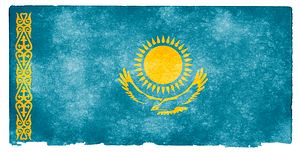Igor Chuprin, a 37-year old Kazakh citizen, has been sentenced to five and a half years in prison after being convicted of separatist activities and inciting discord online. RFE/RL reports that at least four Kazakh citizens have been jailed on similar charges since 2015.
According to the court in Petropavlovsk, Chuprin posted negative comments about Kazakhs and Kazakhstan as well as calls to make Kazakhstan part of Russia on his VKontakte account between September 2014 and May 2015.
Chuprin was charged under two articles of the Kazakh criminal code, 180 (Part 2) and 174 (Part 1). Article 180 outlines separatist activities, with Part 2 specifically referencing propaganda or public calls for separatism with the use of mass media or communication networks. Article 174 covers the instigation of discord, whether it be “social, national, generic, racial, class, or religious,” as well as insulting national honor and propaganda “of exclusivity, superiority, or inferiority of citizens.”
The specifics of what Chuprin posted have not surfaced in media reports, likely because reposting such content in detail would open the poster up to being charged in a similar manner.
The five year sentence mirrors that of Igor Sychyov, a 26-year old Kazakh citizen convicted in November 2015 on separatism charges linked to a poll he posted online querying residents of his northern Kazakhstan town about whether the region should rejoin Russia.
Separatism can be a serious topic, especially for young states and those that formerlywere part of a larger state. But in the cases of Chuprin and Sychyov there is a very modern string of questions: how seriously should authorities take what people post on social media networks? Is a controversial poll an endorsement of the question? What’s the difference between posting something for discussion and something the poster believes in or would act on?
If the reaction to social media posts seems harsh, many analysts have linked it to worries in Astana that the fate of eastern Ukraine and Crimea could play out in northern Kazakhstan. Analysts point to demographics and linguistics, and to how fervently Astana promoted the Kazakh state’s supposed 550th year in 2015 after Russian President Vladimir Putin made comments in 2014 that Kazakhs never had a state before Nazarbayev.
But Russia doesn’t need to invade Kazakhstan; it already has allies in Astana — making the jailing of individuals for controversial or insulting statements appear all the more heavy-handed.
Moscow also hasn’t responded negatively to the jailings, not in the fashion it has cried foul across the Ukrainian border. For example, in 2014 after a man was killed in Donetsk during fighting between pro-Russian and pro-European protesters, the Russian Foreign Ministry said in a statement, “Russia is aware of its responsibility for the lives of compatriots and fellow citizens in Ukraine and reserves the right to take people under its protection.”
Given Russia’s fuzzy logic on separatism — laws that mirror Kazakhstan’s with regard to calling for state breakup while also supporting separatist groups in the West — some concern is warranted. But as with many things, Kazakhstan’s reaction — to jail individuals for statements the state doesn’t like — may feed a far worse problem.

































